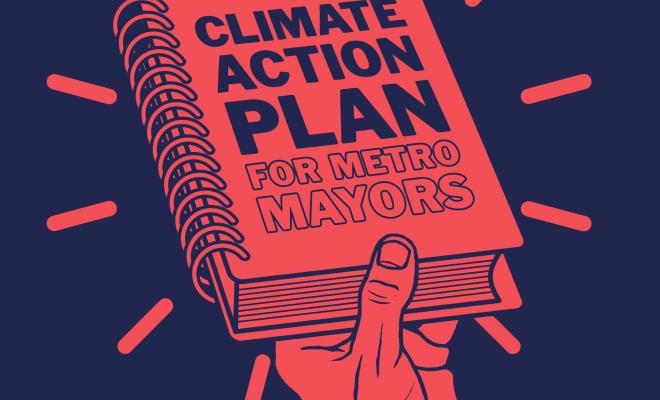24 Jan 2025
What can the next Mayor do for people and planet?
We're facing a climate and ecological emergency – the biggest threat we’ve ever seen to humanity’s existence. Whoever is elected as the next Mayor of Cambridgeshire and Peterborough can’t single-handedly solve the crisis, but they must use the powers they have to make as big a difference as possible. They have a very important role to play in providing a guiding vision for the area, and will need to work with councils, businesses, local communities and the national government.
The Cambridgeshire and Peterborough Combined Authority (CPCA) has a Climate Action Plan 2022-2025. The plan, which is based on the Report of the Cambridgeshire and Peterborough Independent Commission on Climate, doesn’t set out emissions reduction targets for the area, but the Commission notes that “emissions are almost 25% higher per person than the UK average, excluding the emissions from peat”. Analysis by Clima te Emergency UK shows that CPCA’s action on climate is variable, with good scores for collaboration and engagement but low scores on several aspects of transport as well as on integrating climate action into its wider strategies, for example. Besides the CPCA’s Climate Action Plan, there are also some specific plans within the area such as the Peterborough Local Area Energy Plan (LAEP), which has a target of net zero by 2040 for the city. Across the whole area, it’s clear that action needs to be accelerated on several issues, including improving public transport. This Climate Action Plan will help the next Mayor do this using the devolved powers and funding granted to them.
How green is Cambridgeshire and Peterborough?
10 priorities for the next Mayor
- Ensure all plans, programmes and investment decisions are in line with what’s needed to address the climate and ecological emergency and are aligned with international, national, regional and local carbon reduction targets.
- Ensure that the voices of those most impacted by climate breakdown and nature loss are heard and given centre-stage in decision making.
- Support new green jobs. Protect workers and communities through a just transition to a low-carbon, nature-rich, circular economy, including linking skills training to low-carbon jobs.
- Ensure new development is zero carbon and served by sustainable transport using strategic planning and their influence on constituent local planning authorities. Use investment in brownfield and affordable housing to deliver zero-carbon homes in locations accessible by public transport and active travel.
- Take a leading role in accelerating action to bring existing homes and buildings in the area up to high energy efficiency standards (EPC rating C) to reduce emissions and put an end to fuel poverty. Ensure that existing homes, buildings and infrastructure are protected from extreme weather events.
- Accelerate action to deliver on targets to increase public transport use as well as walking and cycling and to cut car use. This includes improving the quality, connectivity and affordability of public transport services, with a rapid move to bus franchising as a key measure to restore bus services to at least 2010 levels.
- Lead and support the development and implementation of the 2 Local Area Energy Plans (LAEPs) to increase the supply of clean, renewable energy, including community energy initiatives and the roll-out of heat pumps.
- Ensure that the Local Nature Recovery Strategy (LNRS) that’s being developed for the area increases tree cover, restores peatland, protects and enhances nature, eliminates green space deprivation, and helps the area become more resilient to the impacts of climate change.
- Lead the development of a circular economy strategy for the whole area, building on existing initiatives with local businesses and local authorities to both cut waste and resource consumption and boost the green economy, including encouraging alternatives to cement in construction.
- Ensure that growth in the region is within environmental limits, in line with recommendations by the Cambridgeshire and Peterborough Independent Commission on Climate, and doesn’t worsen the overuse of water resources.


